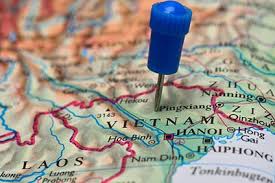AWI – emerging market strategy
To reduce the Australian wool industry’s risk of being too reliant on
China as the major buyer of Australian greasy wool, AWI has an ‘Emerging
Markets strategy’ to identify and encourage potential new manufacturing hubs in
Southeast Asia and the Indian sub-continent. The strategy aims to replicate the
success that AWI has had in helping develop new manufacturing supply chains for
wool products in Vietnam.
Buying about three-quarters of all Australian greasy wool, China is an important processing (and consumer) market for Australian wool. The Australian and Chinese wool industries have a very good relationship and this will continue.
However, due to the increased cost of wool processing, AWI is looking for wool processing opportunities in new markets to reduce the dependency on China.
Accessing the most efficient, sustainable and cost competitive manufacturing hubs available will ensure that Australian wool can maintain its competitive relevance. An expanded number of processors will also mean an increased number of buyers of Australian wool, which could result in growing demand for the fibre.
SUCCESS IN VIETNAM
AWI has worked in Vietnam for the past decade, launching in 2012 its ‘Out of Vietnam’ program to help encourage a new manufacturing hub for wool products.
AWI General Manager Eastern Hemisphere John Roberts says, as the country’s economic and social environment has evolved, AWI has witnessed Vietnam’s growing use of Australian wool to produce quality garments.
“With the support of AWI, Vietnam now has an established wool supply chain that includes worsted spinning through to weaving, knitting, dyeing and finishing for both international and domestic markets. Supply chain partners have grown from zero in 2012 to more than 85 today,” he said.
“Our program has successfully helped future-proof Australian wool’s prospects by opening up a new and expanding processing destination for our fibre. Our heritage in wool research and development together with Vietnam’s solid background in the textile industry made a perfect combination.”
AWI’s success in Vietnam can be attributed to a number of key factors including a rapidly growing economy, a rich textile culture, a competitive workforce, increasing production costs in China, and more recently, China’s trade dispute with the USA.
“While AWI’s primary aim in the country has been to develop new
manufacturing supply chains for wool products, we have also witnessed the
market for wool now extending far beyond the manufacturing sector, allowing AWI
to help introduce apparel made from Australian Merino wool to consumers in the
Vietnam domestic market,” John added.
THE NEXT BIG THING
AWI is now looking to identify, foster and build the “next Vietnam”. Through its Emerging Markets strategy, the company is currently evaluating and prioritising key target markets in Southeast Asia and as far as west as the Indian subcontinent: including Bangladesh, Cambodia, Myanmar, Laos and Sri Lanka amongst others.
In each market, AWI is researching the types of manufacturers in the market, which companies are already working with wool, what wool (yarn, fabrics, garments) is being produced there, and who wants to work with wool and how AWI would help them to do so.
Key data being analysed also includes each market’s economic status, textile sector size and growth, current political status and other important information such as free trade agreements.
“Analysing this data will help us gauge which markets are best suited to introduce wool or support more wool in their supply chains. We will then use our findings to determine what resources AWI should deploy in which markets,” John added.
Source: This article appeared in the September 2020 edition of AWI’s Beyond the Bale magazine.


